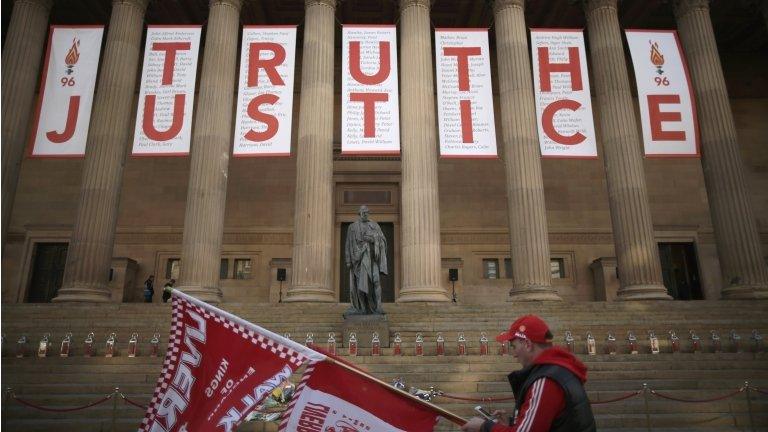'Hillsborough Law' drafted by victims' families' legal team
- Published
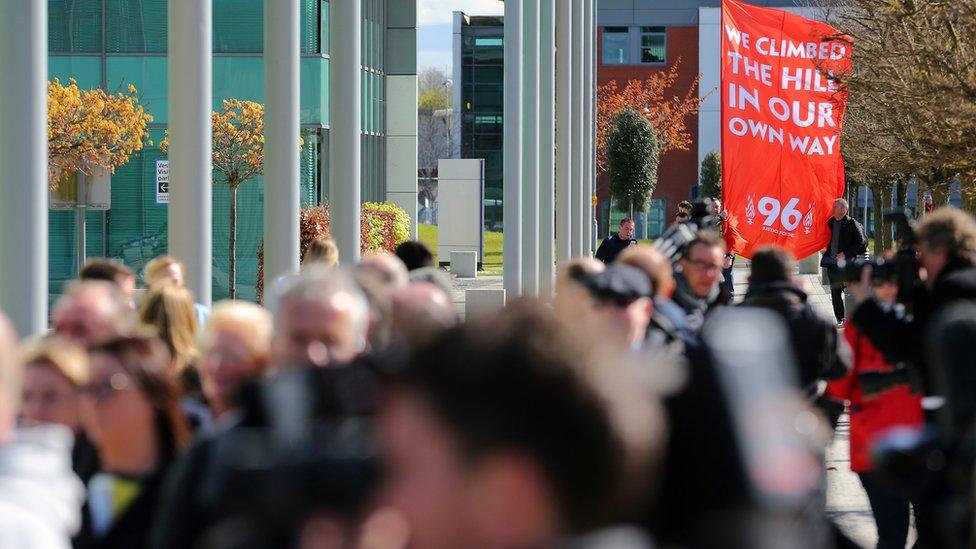
After a 27-year campaign by victims' families, the behaviour of Liverpool fans was exonerated
Lawyers for the families of the 96 Hillsborough disaster victims have drafted a new law to compel public officials to be truthful at inquiries.
Jurors at the new inquests found the fans who died as a result of the 1989 crush were unlawfully killed.
The victims' families campaigned for 27 years for the truth despite senior officers' lies and an alleged cover-up.
The Hillsborough Law, external, which includes penalties and fines, would address a "culture of denial", campaigners said.
Institutional defensiveness was the default position, they added.
The victims' families had called for new legislation following the inquests' conclusions and have since been working on the draft bill.
They will be answering questions about the proposed law later in Liverpool.
Criminologist Prof Phil Scraton, a key author of the Hillsborough Independent Panel Report, said the law would be a "fitting legacy" to the campaign for justice.
"After 27 years of sustained campaigning by bereaved families and survivors, the Hillsborough inquests revealed, in stark relief, the prolonged suffering when the interests of powerful institutions and individuals prevail over the rights of people to full, detailed disclosure of the context and circumstances in which their loved ones died."
Following the inquests the chief constable of South Yorkshire Police, David Crompton, was was suspended, because of concerns about public confidence in the force.
He was criticised by the victims' families for the stance taken by lawyers representing the police during the two-year-long hearings.
The proposed Hillsborough Law, or Public Authorities Accountability Bill, seeks to place a further onus on those in public office to co-operate positively with investigations.

The Hillsborough inquests

It would make it illegal for those in public service to give misleading information, while the bill also contains penalties and fines for those who are wilfully non-compliant.
A requirement for current and former public servants to provide statements and documents to investigations is also included.
Anne Burkett, whose son Peter died at Hillsborough, said: "I would never like to see other people go through what we've been through. So we need this law."
"There is a culture of denial, covering up and collusion between officers. A culture of trying to manipulate and distort the truth," said Becky Shah, whose 38-year-old mother Inger died in the disaster.
Margaret Aspinall, who chairs the Hillsborough Family Support Group, said: "It would have made a big difference. Families would have had more information.
"We should not have had to sit through another inquest to find out information that was already there 27 years ago. It's an absolute disgrace.
"This is not just about Hillsborough: It's about making things better for ordinary people."
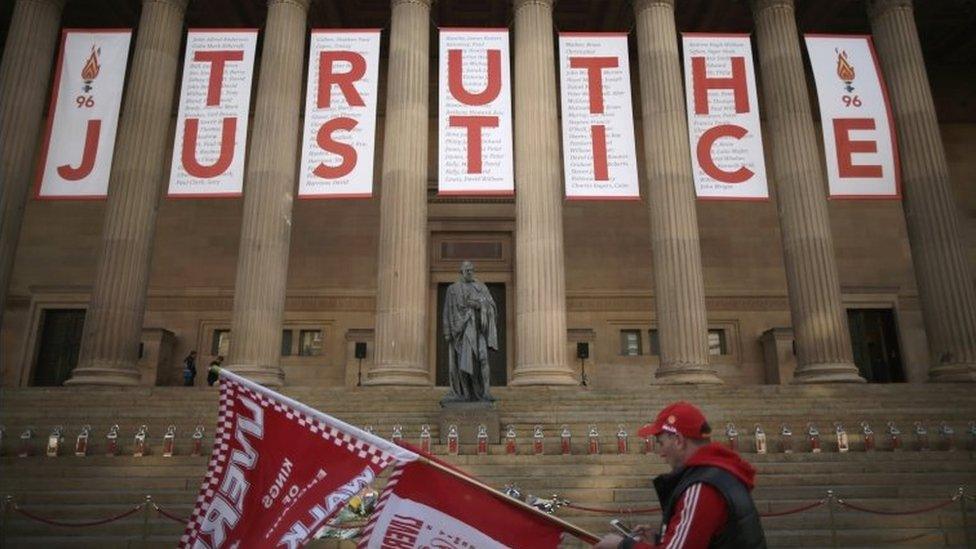
A service in memory of the victims was held at Liverpool's St George's Hall
The draft Hillsborough Law will be considered by Bishop James Jones's Review, which was commissioned by the then Home Secretary Theresa May following the jurors' conclusions on 26 April, to consider what lessons could be learned from the disaster.
Two separate criminal investigations are ongoing.
Operation Resolve is investigating the cause of the disaster, including events on the day and those leading up to it.
The Independent Police Complaints Commission (IPCC) is looking into police actions in the aftermath of the disaster.
- Published2 June 2016
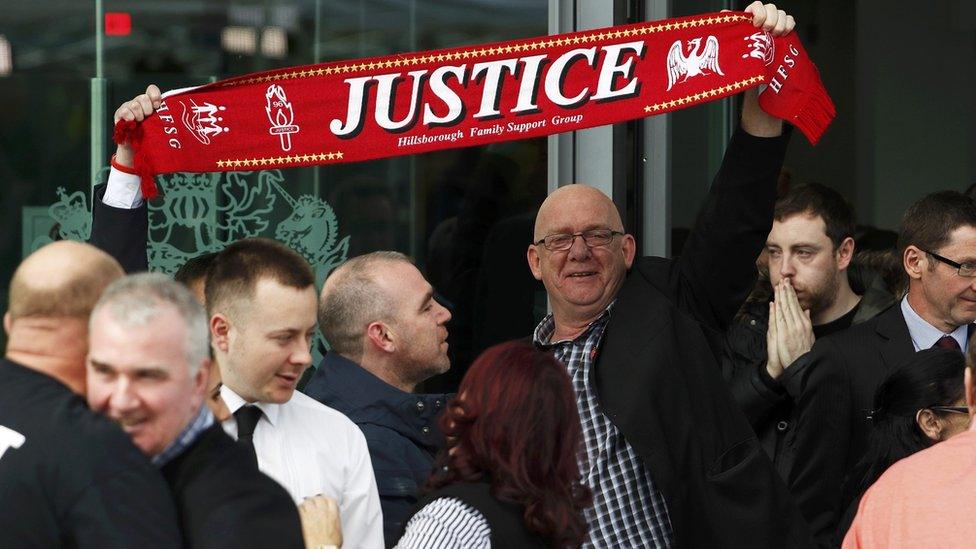
- Published12 May 2016
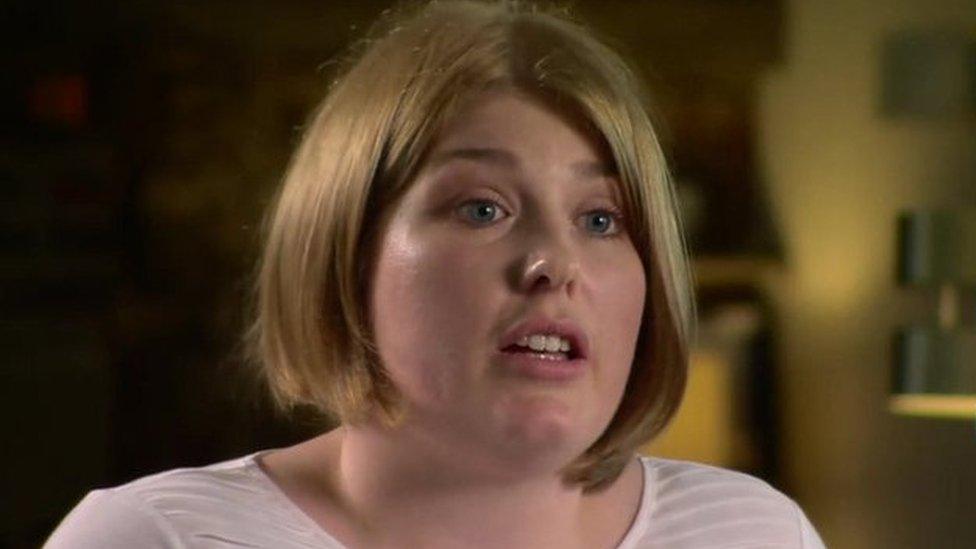
- Published29 April 2016
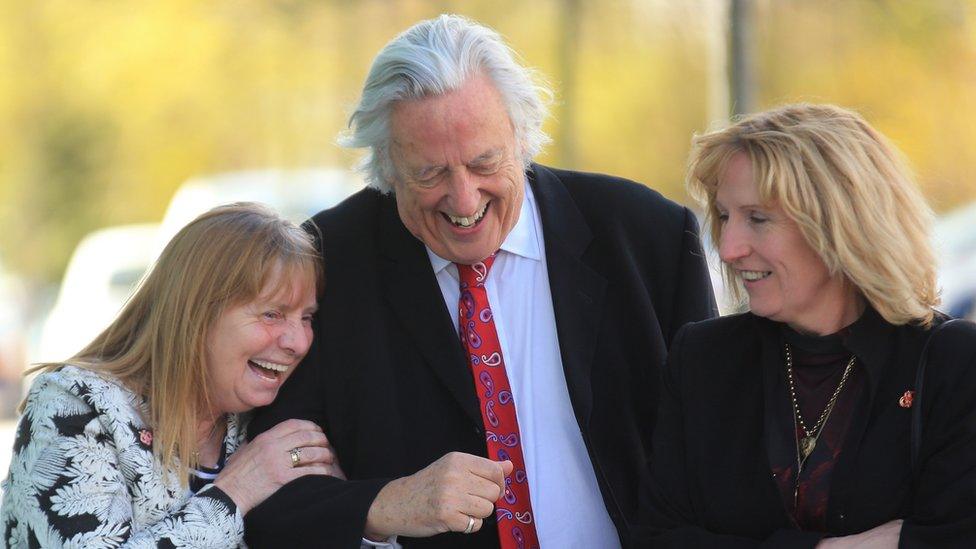
- Published26 April 2016
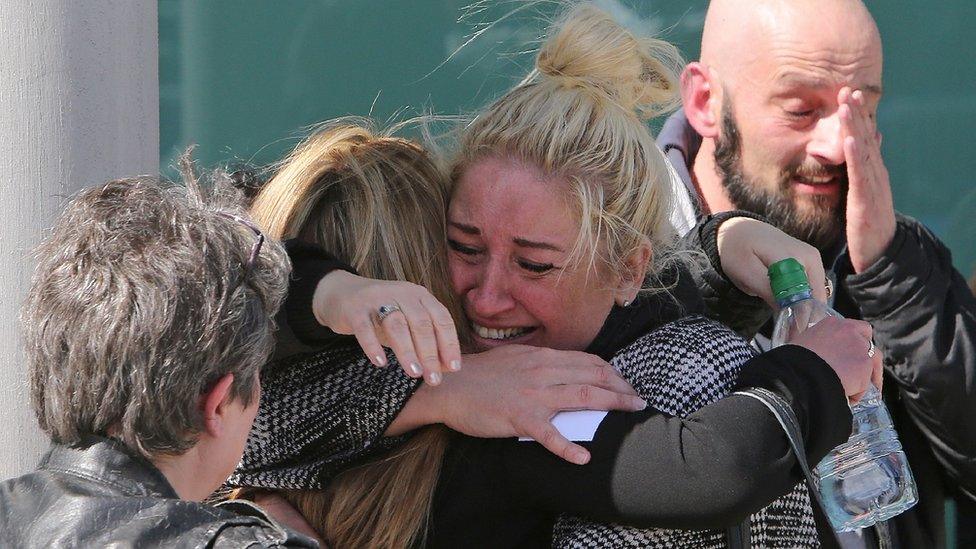
- Published26 April 2016
